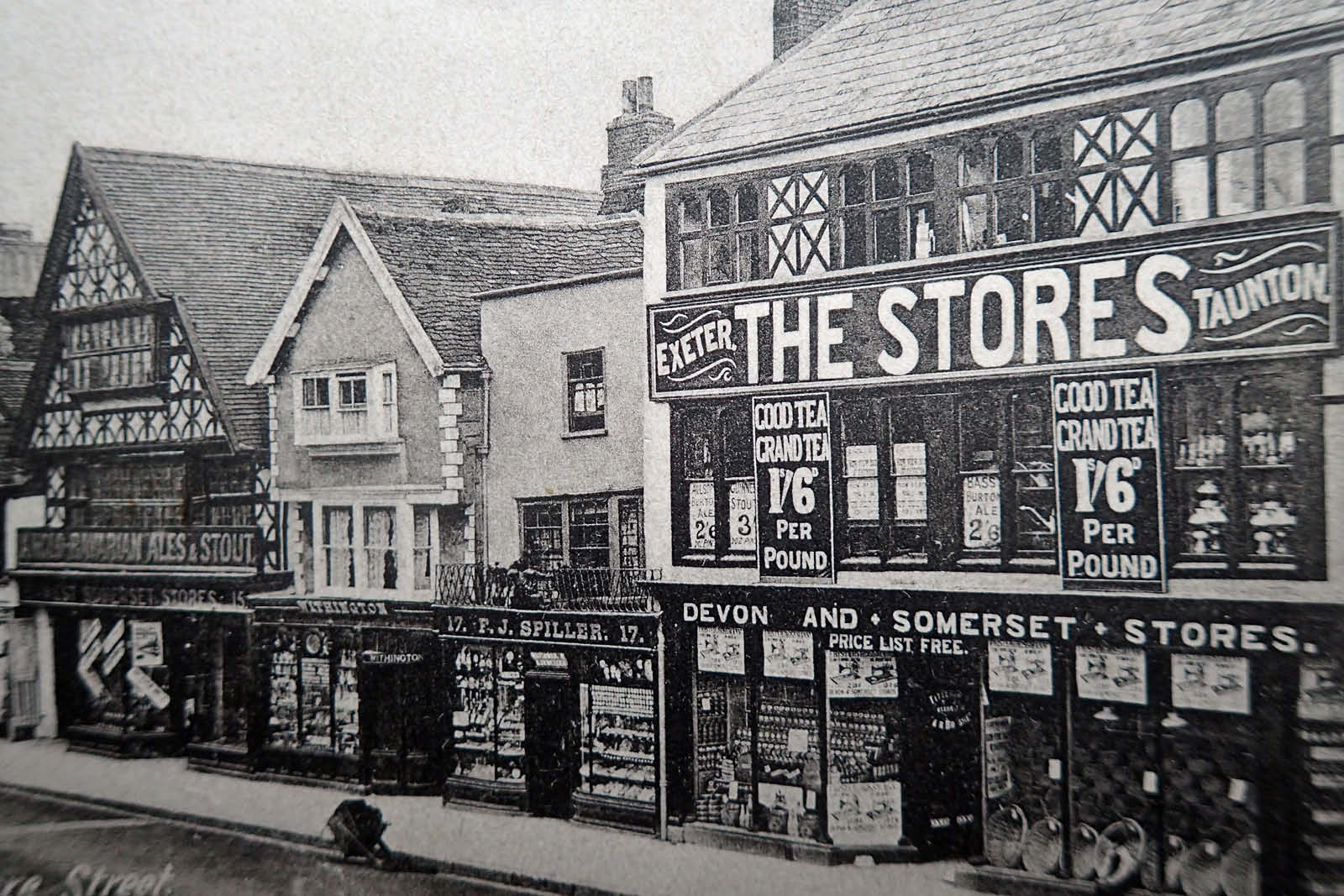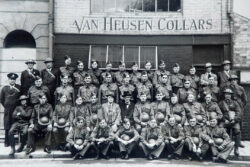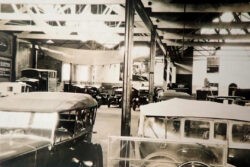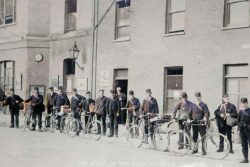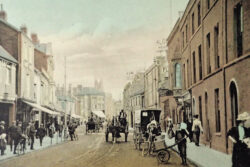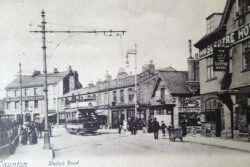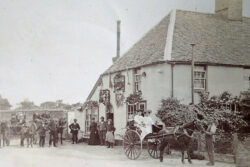This is perhaps the most photographed street in Taunton. It features The Devon and Somerset Stores. I can just remember ‘The Stores’. It had wooden floors which to my mind were a bit wonky. Also those smells that you associate with old shops soaked in history as this building was.
The building was originally The White Hart Inn, a notorious place. In the late 1700’s the inn together with The Castle and London Inn were the principle inns in the town. In 1865 Myer Jacobs converted The White Hart into a general furnishing warehouse. Jacobs had owned Mansfield House and the release of his land at his death enabled Mansfield Road to be built in 1924. Jacobs conversion provided a ready made store for when The Devon and Somerset moved in.
James Hare was born in Taunton in 1848. As a young man he opened his first store in Bristol. The Taunton store opened in 1870. A third store in Exeter soon followed enabling Hare to call his company The Devon and Somerset United (Co operative) Stores.
James Hare died in 1920 enabling his son Henry to take control of the business. In a sense the business failed due to its own diversity. The Taunton store offered 10,000 articles for sale. Included at Taunton were a grocery, wines and spirits dept, medicines and perfumery, stationary and fancy goods, ironmongery and household furnishing, brushes and mats, glass and china, electro plate, and boots and shoes.
In fact the stores advertised itself as the largest and most complete in the west. The 1960’s saw great changes in retailing. The Co op had grown from smaller premises to open as Taunton’s first supermarket in East Street in 1965.
Three years later it was all over for The Devon and Somerset Stores as the building was entirely demolished in 1968. Perhaps like the George Inn building in High Street the frontage could have been maintained when the rest was rebuilt behind it. Sadly it was not to be as the building was re built in similar style as a shoe shop.
Little reminders of this part of Fore Street remain. The “Tudor” building remains much the same. Woollatt’s chemists occupied the Spiller’s premises until 1878 when they moved over to number 20. The shop now houses Hays Travel but Woollatt’s name remains in the doorway. In my own Taunton collection I have a Stores pottery spirit jar, and a lovely little stoneware bed warmer made by Doulton. Also a glass baby feeder dug up in the Bathpool pit of 1892.
Sadly in later years these bottles became known as a baby murderer as the rubber tube and nipple were perfect sites for bacteria to multiply.
One wonders if the same diversity will eventually see the end of the department store. Too big, too costly. Maybe the future lies in smaller specialist shops. We shall see.
By Nick Chipchase
